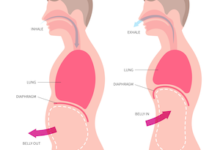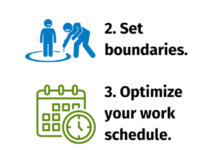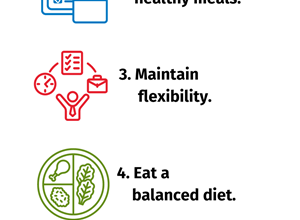Starting My First Clinical Rotation – What Do I Need?
It’s been over twenty-five years since I graduated from nursing school, but I will never forget my first day of clinical rotations. I had learned quite a bit in the classroom and skills lab: how to assess my patients, administer medications, and provide basic care. Now it was time to put it all into practice, yet I felt far from prepared. What if I couldn’t answer my instructor’s questions? Do I have the necessary equipment? What if I forget how to take a blood pressure? It’s normal to feel nervous on your first day of clinical, but there are several things you can do to ease the anxiety. Here are some tips and a list of supplies to help you through that daunting first experience.
- Be positive! You have built a strong foundation – trust your instincts and have confidence in the knowledge you have learned to date.
- Ask questions. While you know quite a bit, there’s a great deal that you don’t know. Don’t guess. Know your limits. Ask your nurse preceptor or instructor for help when you don’t understand something or know how to perform a task.
- Prepare, prepare, prepare.
- When possible, visit the floor the night before clinical to gather information, review the chart and do research to understand your patient’s:
- Diagnosis
- Past medical history
- Current medications
- Lab results
- Surgeries, procedures or other studies performed
- When possible, visit the floor the night before clinical to gather information, review the chart and do research to understand your patient’s:
- Apparel and supplies that you will need include:
- Uniform or scrubs – based on the requirements of your specific school, you may need a certain color based on the clinical setting. For helpful tips, check out our blog on Nurse Apparel & Tools – Look Good, Feel Good & Be Prepared.
- Lab coat – check your school requirements as lab coats are often used during clinicals or for professional meetings.
- Shoes – be sure to purchase comfortable and supportive nursing shoes as you will be on your feet for many long hours. Check out our blog for tips on buying the right nursing shoes: Shoe Shopping – Put your best foot forward.
- Compression socks – consider wearing these to help prevent blood clots in the lower extremities, decrease swelling and improve blood flow back to the heart.
- Watch –a good water-resistant watch with a second hand to check your patient’s pulse and respiratory rate is helpful as you may not be permitted to pull out your phone during clinical hours.
- Stethoscope – you’ll need a stethoscope for your entire nursing career so invest in a high-quality product such as Littmann® that includes both a diaphragm and bell for listening to high- and low-pitched heart, lung and bowel sounds. Be sure you have an identification tag on your stethoscope. Check out our blog for tips on buying the right stethoscope: Shopping for Stethoscopes – Do You Hear What I Hear?
- Blood pressure cuff – most hospital units will have these readily available, however if you are in a home health setting you may need to furnish your own.
- Penlight/Small Flashlight – to assess pupil reactivity, mouth, ears, nose, throat, and wounds.
- Scissors – to cut tape, dressings, bandages, and gauze.
- Hemostats – helpful to open medications and loosen tight connections between intravenous (IV) tubing.
- Clipboard – to organize your documents, reference sheets, and nursing care plans.
- Small pocket notebook – for notes, vital signs, assessments, etc.
- Reference books – drug handbook and medical-surgical text if these are not available on the unit.
- Calculator – helpful to calculate drug doses, IV drip rates, etc., if your phone or a unit computer is not accessible.
- Pens, highlighters, and a sharpie for marking dressing changes.
- Identification badge holder, clip and/or lanyard.
- Badge reference cards – we didn’t have many of these when I was in nursing school but there are several on the market today that are plastic/waterproof and provide quick, handy medical references that fit inside your pocket, badge holder or attached to your badge clip. Check out our Nursing Pocket Cards available to download for FREE.
- Miscellaneous items: tape, alcohol swabs, lip balm, lotion, hair ties, snack, gum, water bottle.
- Clinical bag or backpack to carry all of your nursing supplies.
Note: Don’t forget to label all of your supplies clearly with your name.
Get a good night sleep, eat a protein-packed breakfast, and show up on time, eager and ready to work. Health care environments are professional settings, familiarize yourself with their specific protocols. Be courteous, and remember to thank your preceptor and staff. Don’t forget that everyone was in your shoes at one point in their lives. Take advantage of every opportunity to learn and grow as a practitioner.
Do you have any helpful tips or strategies? We would love to hear from you!






